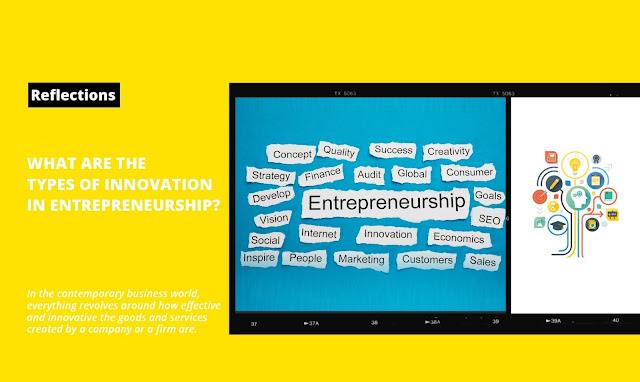Exploring the Various Types of Innovation in Entrepreneurship
Innovation is the driving force behind the evolution of entrepreneurship, reshaping industries, and spurring economic growth. As businesses strive to stay competitive and meet evolving consumer needs, understanding the diverse types of innovation becomes crucial. In this article, we delve into the distinct categories of innovation within the realm of entrepreneurship, shedding light on how each type contributes to the success and sustainability of businesses.
Product Innovation
Product innovation involves the creation or enhancement of goods and services to meet changing consumer demands. Entrepreneurs constantly strive to develop new and improved products, often through technological advancements or novel design approaches. Examples of product innovation range from the introduction of smartphones with cutting-edge features to the development of eco-friendly packaging solutions that reduce environmental impact.
Process Innovation
Process innovation focuses on optimizing internal operations and workflows to enhance efficiency, reduce costs, and improve quality. Entrepreneurs adopt process innovation by reengineering existing processes or developing entirely new methods. This type of innovation is exemplified by the implementation of lean manufacturing techniques in factories, the adoption of automated systems for inventory management, and the use of data analytics to streamline decision-making processes.
Marketing Innovation
Marketing innovation involves the creation of new strategies, campaigns, or approaches to promote products and services to target audiences. Entrepreneurs employ creative marketing techniques to differentiate their offerings from competitors and capture consumer attention. A notable example of marketing innovation is the viral marketing campaigns used by startups to generate buzz and rapidly gain a significant customer base.
Business Model Innovation
Business model innovation revolves around redefining how a business delivers value to customers and captures revenue. Entrepreneurs often disrupt traditional industry norms by introducing new pricing models, distribution channels, or customer engagement strategies. Companies like Airbnb and Uber have revolutionized their respective industries by introducing peer-to-peer sharing models that challenge conventional business models.
Social Innovation
Social innovation addresses societal challenges and aims to create positive social impact. Entrepreneurs engage in social innovation by developing solutions that address issues such as poverty, healthcare accessibility, education, and environmental sustainability. Initiatives like TOMS Shoes' "One for One" program, where a pair of shoes is donated for every pair sold, exemplify how businesses can drive positive change through their operations.
Open Innovation
Open innovation involves collaborating with external partners, such as other companies, research institutions, or customers, to co-create and share knowledge. Entrepreneurs tap into a broader pool of expertise and resources, accelerating the development of innovative solutions. The Linux operating system, developed collaboratively by a global community of developers, serves as a prime example of open innovation.
Incremental vs. Radical Innovation
Innovation can also be classified based on the extent of change it brings. Incremental innovation involves making small improvements or modifications to existing products, processes, or business models. Radical innovation, on the other hand, introduces disruptive changes that significantly alter the market landscape. Both types of innovation play a vital role in entrepreneurship, with incremental innovation often serving as a stepping stone to radical breakthroughs.
These are the common types of innovation in entrepreneurship. Innovation lies at the heart of entrepreneurship, fueling growth, adaptability, and success in a rapidly evolving business landscape. By embracing various types of innovation—whether through product enhancements, process optimization, creative marketing, or social impact initiatives—entrepreneurs position themselves to navigate challenges, capitalize on emerging opportunities, and leave a lasting mark on industries and society. As the entrepreneurial journey continues, understanding and harnessing the power of innovation remains a fundamental pillar of sustainable business growth.
The Role of MIT ID Innovation in Nurturing Future Pioneers of Innovation
The trajectory of a burgeoning enterprise is invariably guided by judicious counsel, a requisite to secure a competitive edge in the marketplace. This impels companies to relentlessly scout for adept professionals well-versed in the intricacies of innovation management. Owing to this burgeoning demand, students now harbor a profound fascination for embarking on careers in this realm. Consequently, if your pursuit entails a venerable educational institution to enroll in diverse innovation courses, look no further than MIT ID Innovation. This preeminent virtual educational platform provides a conducive environment for imbibing the rudiments of innovation from seasoned mentors, thereby fostering adeptness in this realm.

.jpg)

Comments
Post a Comment